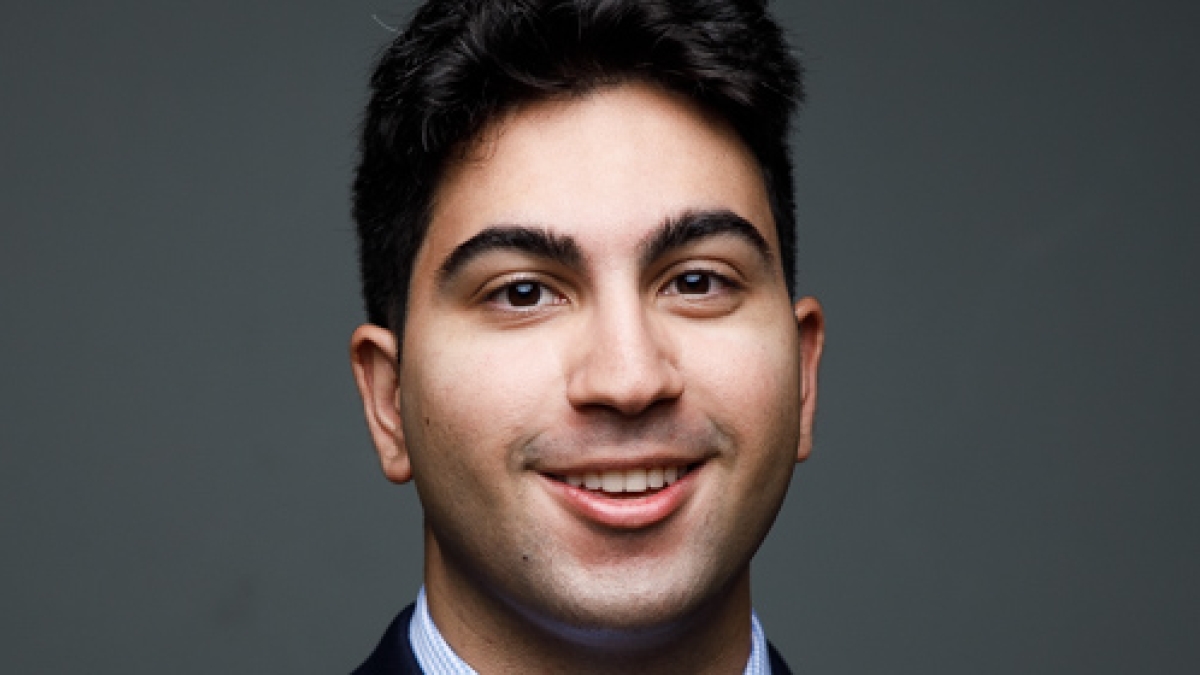ASU grad Bryan Yavari led student team focused on air quality improvement in Mongolia

Bryan Yavari graduates from ASU in May with a bachelor's degree in neuroscience. He plans to apply to medical school. Photo courtesy of Bryan Yavari
Editor’s note: This story is part of a series of profiles of notable spring 2024 graduates.
Of all the things he accomplished as an undergraduate at Arizona State University, Bryan Yavari is most proud of the work he did to address poor air quality inside homes in Mongolia.
“When I first started at ASU, I joined the Engineering Projects in Community Service (EPICS) program. This decision would turn out to be a pivotal component of my ASU career,” said Yavari, who will graduate in May with a bachelor’s degree in neuroscience from The College of Liberal Arts and Sciences' Department of Psychology and honors from Barrett, The Honors College.
Through EPICS, Yavari and his classmates started Project Koyash, aimed at developing, manufacturing air filtration systems to dissipate smoke from coal fires in yurts and distributing them to families in Ulaanbaatar, Mongolia.
“We spent four years developing our solar-powered air purification units and have since delivered 13 systems to families, and are working to send more. The proudest moment of my ASU career is seeing the joy of families having clean air in their homes for the first time,” said Yavari, Project Koyash team leader.
Yavari established a nonprofit organization called Koyash to raise funds for assembling and shipping of as many units as possible. After graduation, he plans to continue working with Koyash while he prepares to apply to medical school.
As Yavari — an ASU President’s Scholar and recipient of the Moeur Award for students who maintain a 4.0 GPA throughout their undergraduate career — approaches the end of his last semester, we asked him to pause and reflect on his time at ASU. Here’s what he had to say.
Question: What was your “aha” moment when you realized you wanted to study the field you majored in?
Answer: I worked on an honors contract with Benjamin Bartelle, assistant professor in the School of Biological and Health Systems Engineering, where we coded a computational neuroscience heat map of two neurotransmitters in the brain. This project illustrated just how fascinating neuroscience can be and further ignited my interest.
Q: What’s something you learned while at ASU — in the classroom or otherwise — that surprised you or changed your perspective?
A: My Barrett honors thesis co-director, Nobel Laureate Leland Hartwell, taught me about the importance of failing and reflection. He and I discussed the transformative benefits of acknowledging and understanding failures, which can lead to substantial growth. Sharing these experiences and learning from others can also be beneficial. Under his guidance, I learned the importance of being a diligent learner and embracing the lessons from past experiences.
Q: Why did you choose ASU?
A: I choose ASU because of the vast amounts of resources and opportunities that are available. ASU provided me with access to so much research and innovation in addition to academic development and extracurricular opportunities.
Q: Why did you choose Barrett Honors College?
A: I loved the welcoming and supportive community in Barrett when I was touring the campus. I spoke with former students and learned about the ample research opportunities to go beyond the coursework. Barrett provided me with funding to present my colorectal cancer research in the Arizona Cancer Evolution Center at the 2024 American Association for the Advancement of Science conference in Denver.
Q: Which professor taught you the most important lesson while at ASU?
A: Jared Schoepf, the director of EPICS, taught me the importance of understanding the human and social context of a problem. Having a great idea is only the start because you need to research and plan for all aspects of a solution when implementing it. This lesson taught me to always dig deeper and investigate further to collaborate with communities to understand their needs and develop a robust solution.
Q: What’s the best piece of advice you’d give to those still in school?
A: The best piece of advice I have is to not be afraid to challenge yourself and try new opportunities. Being open-minded and curious are great ways to embark on rewarding paths. These experiences can allow you to potentially find a new passion, learn lessons and grow in different areas.
Q: What was your favorite spot on campus, whether for studying, meeting friends or just thinking about life?
A: My favorite spot on campus is the Sun Devil Fitness Complex because I love to play sports with my friends and meet new people of different backgrounds.
Q: If someone gave you $40 million to solve one problem on our planet, what would you tackle?
A: If someone gave me $40 million I would work on solving the global air pollution crisis. There are lots of air quality initiatives I would give the money to that make a consequential difference in millions of lives. Through my nonprofit Koyash and my honors thesis examining the health implications of air quality, I have seen how impactful of a social determinant of health air quality has become.
More Sun Devil community

Tested tips for taking exams
With May quickly approaching, many students are starting to prep for their most important tests of the year — final exams.Toni Miceli, the inaugural director of the bar exam success program at…

School of Transborder Studies celebrates 15th anniversary
During the summer before his freshman year at Arizona State University, Salvador Macias participated in the AGUILA Youth Leadership Institute, a college access organization designed to help young…

Barrett program unlocks study abroad for first-year honors students
Twenty first-year students from Barrett, The Honors College at Arizona State University are spending their second semester studying abroad in Rome, Italy.Traveling in a tight-knit honors community…

